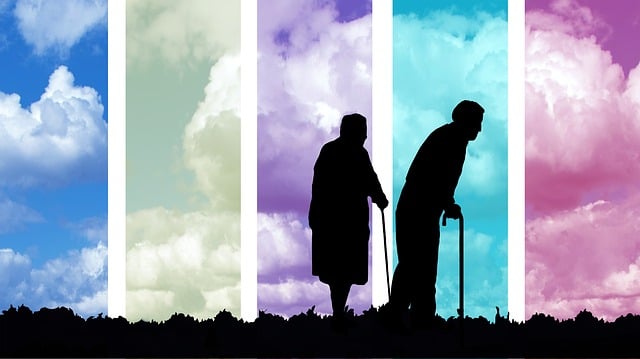
Far from the neon-lit IT parks and the glass frontage of multistoried corporate offices full of youngsters with lanyards dangling like medals of a new-age servitude, another world lies quietly.
Visit any public sector bank branch in a quiet residential neighborhood on a week day and you’ll see them.
A few aging souls – stooped, mostly silent, waiting patiently on cold metal chairs. Frail fingers clutching passbooks (yes, they still use them!), eyes scanning keenly on lines of ink for that one entry - pension credit, bank interest or monthly remittance.
A faint whisper from the system acknowledging they still exist.
Come sundown, they drift to temple courtyards or park benches, where you see them again, in the fading light, this time their vacant eyes staring into nothing.
They are not destitutes or disenfranchised. Quite the contrary. They’re the stalwarts of an India that existed a while ago - Government staffers, Bank managers, School principals, Railway officers, public sector employees.
With dreams that said just one line - Raise children well and live with dignity.
Not surprisingly, they measured legacy not in ESOPs but in the passports their children stamped with visas to America, Europe or Australia.
Their rituals are predictable – Bank, Post Office, the vegetable vendor’s banter, Auto Anna’s chit-chat, and the domestic help’s gossip. Or re-reading that scan report that came last month. Weekends are all about the 30-minute video call, spent straining to understand their grandkids’ foreign accents.
Technology mocks them - UPI, OTPs, QR codes, Netbanking—they’re internet orphans in a world that has moved on. Their bodies betray them —knees buckle, appetite suffers, memories blur, pills pile up. Life bleeds into sepia.
The dad whose dead body stays undiscovered at home for days. The mom whose cremation happens over Zoom because her son doesn’t get a visa on time.
These are cold truths of a society that venerates sacrifice but abandons the sacrificers. Of an ecosystem that equates success with green cards, while dismisses holding that elderly hand as collateral damage.
Time is the only currency that matters. One day, it will run out for us, too.
Then, we too can sit forgotten on temple benches.
Waiting.